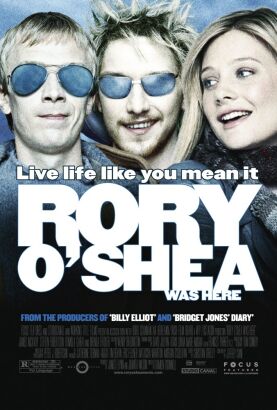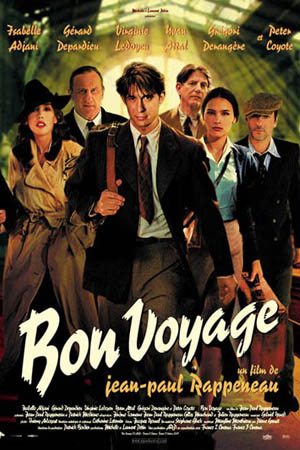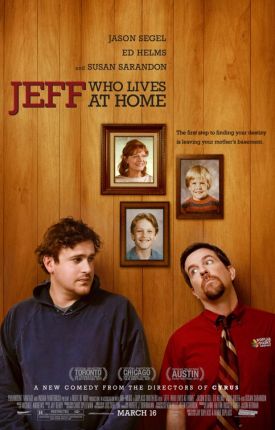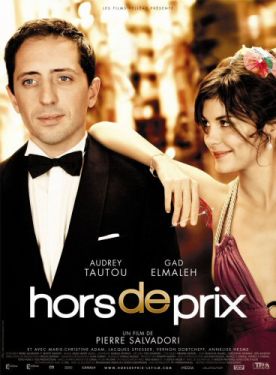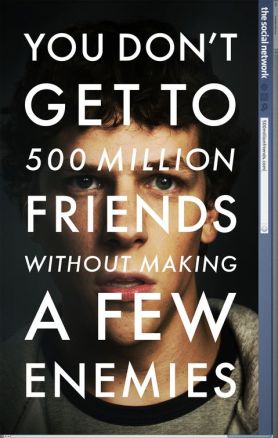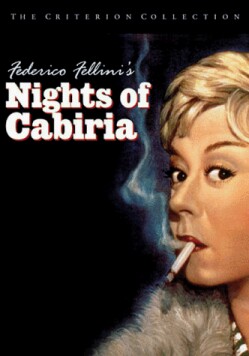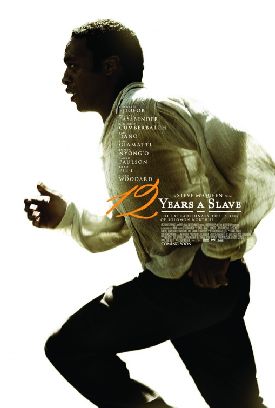Rory O’Shea Was Here
Something about pathography sets my teeth on edge, but some examples of it, whether in print or on film, are obviously better than than others. Both The Aviator and its fellow Best Picture nominee, Ray, fall into this category, for instance. But where the former has no higher purpose than to ogle celebrity quirks and so seems merely voyeuristic, the latter seems much more a celebration of Ray Charles’s music than it is of his private life and addictions. Fictional accounts of illness, too, tend to smack of the soap-operatic. Like tragedy they evoke our pity, but pity rendered safe and just a bit smug by the lack of terror, which Aristotle first identified as pity’s indispensable twin. Without it, representations of illness simply reinforce the already existing barrier between us and the fictional sufferer and, by inviting our pity, give us a ready-made excuse for distancing ourselves from him.
This is not to say that a story of illness cannot be turned into a good movie, and I think that Damien O’Donnell, working from a screenplay by Jeffrey Caine, has accomplished the trick in Rory O’Shea Was Here — though these two could scarcely have done so without outstanding performances in the two principal roles by James McAvoy and Steven Robertson. Mr Robertson plays Michael Connolly, a young Irishman suffering from severe cerebral palsy who has been parked in a nursing home by his sole surviving parent, a prominent barrister (Gerard McSorley), and forgotten. He has come to accept his own helplessness and even the enforced isolation caused by his inability to make himself understood. Along comes Rory (Mr McAvoy), a young man of about Michael’s age who suffers from Duchenne muscular dystrophy, a wasting disease which has left him only the use of the two fingers he uses to operate his electric wheelchair. But he still has the use of his witty and cutting Irish tongue and, even more remarkably, he can understand what Michael says.
“I spent six years in a class next to a kid who makes you sound like Laurence f****** Olivier,” he tells him.
To Michael, the fact that someone can understand him and interpret for him to others seems almost miraculous, and he reverently refers to the ability that Rory himself seems hardly to value as his “gift.” To Rory, however, the process of liberating Michael from the prison of his illness has only just begun, and he infects him with his own longing for what is “out there” in the world beyond Carrigmore, the nursing home. “Don’t you want to be like everyone else?” he asks him. “Don’t you want to get drunk? Get arrested? Get laid?”
Such things have always seemed impossibly remote to Michael but soon he is participating in Rory’s various acts of rebellion against the authorities at Carrigmore, especially a brilliantly understated Nurse Ratched-figure played by Brenda Fricker. In the teeth of her opposition, the two boys manage to scam a government commission for the disabled and blackmail Michael’s father in order to get a home together — not the kind where you are told by others what to do, and when you can come and go, but the kind where you have the front door-key — “out there.” Along with it they acquire an attractive home-help called Siobhan (Romola Garai) with whom poor Michael falls instantly in love.
The ending, both of this passion and of the ménage will not be as unexpected to most of us as it is, very movingly, to him, but it is saved from sentimentality by the spikiness of Rory’s character and his utter refusal to be pitied. At one point Siobhan says to him, “You know what your disability is? You’re an a******!” He is, too: undisciplined, anarchic, intensely annoying to all around him and especially those who care about him — and all, it suddenly seems, just to receive this accolade and, with it, the final proof that he has succeeded in becoming no more pathetic than the next a******. His passionate desire to be like everyone else has at last been fulfilled. As he says when reprimanded for breaking the peace of the nursing home with his stereo in the middle of the night, “At least they know I’m f****** alive!”
That desire to make a mark in the world however unpromising the materials one has with which to make it, and to be remembered after one has gone, even in a small way, by those whose lives one has touched, makes this movie rise above pathography. The particular disabilities it chronicles are so devastating, so dramatic in their own right that they would overwhelm a movie less carefully crafted than this one to show us the human reality upon which they are superimposed. Like Rory himself, the movie transcends disability and reaches that universality which is the mark of the cinematic real thing.
Discover more from James Bowman
Subscribe to get the latest posts to your email.

